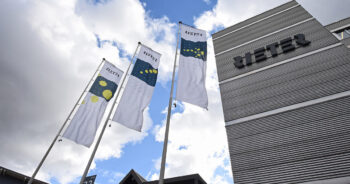 Textile machinery supplier Rieter is to cut up to 600 jobs as it looks to reduce its overall operating costs amid weakening demand for its spinning technology. Reporting a 22% increase in sales to CHF 758.2 mn ($869 mn) for the first half of 2023, Rieter said it was responding to a challenging market situation over the past two years, which was marked by severe disruptions in the global supply chain in conjunction with rising material, energy, labour and production costs.
Textile machinery supplier Rieter is to cut up to 600 jobs as it looks to reduce its overall operating costs amid weakening demand for its spinning technology. Reporting a 22% increase in sales to CHF 758.2 mn ($869 mn) for the first half of 2023, Rieter said it was responding to a challenging market situation over the past two years, which was marked by severe disruptions in the global supply chain in conjunction with rising material, energy, labour and production costs.
The company’s order intake during the same period dropped significantly to CHF 325.0 mn ($372 mn), down from CHF 869.4 mn ($997 mn) in the same period last year. The job cuts are part of Rieter’s new ‘Next Level’ restructuring programme, which the company says, will aim “to increase long-term value for customers, employees, and shareholders”.
“The goal of the program is to strengthen sales excellence, sharpen customer focus, improve cost efficiency in production and optimise fixed cost structures,” Rieter said, adding that most of the program initiatives will be implemented before the end of 2023 with a view to reducing operating costs by some CHF 80 million per year.
The initial program will see the reduction of around 300 positions, mostly at its main site in Winterthur, Switzerland, with the possibility of further market and volume-related cuts of up to 600 positions. At the end of June 2023, Rieter had a global workforce of 5,555 employees.
According to Rieter, demand for its short staple fibre spinning technology has slowed in almost all regions with the exception of China. “Only in China did order intake increase due to investments by spinning mills in improving their local competitiveness,” the company said.
“In addition, some customers held back pending investment decisions and waited for the innovations presented at ITMA in June 2023.
At the same time, demand for consumables, wear and tear and spare parts declined due to the global market downturn while cancellations in the reporting period were around 5% of the order backlog, impacted by the effects of the severe earthquake in Turkey.”
 Textile machinery supplier Rieter is to cut up to 600 jobs as it looks to reduce its overall operating costs amid weakening demand for its spinning technology. Reporting a 22% increase in sales to CHF 758.2 mn ($869 mn) for the first half of 2023, Rieter said it was responding to a challenging market situation over the past two years, which was marked by severe disruptions in the global supply chain in conjunction with rising material, energy, labour and production costs.
Textile machinery supplier Rieter is to cut up to 600 jobs as it looks to reduce its overall operating costs amid weakening demand for its spinning technology. Reporting a 22% increase in sales to CHF 758.2 mn ($869 mn) for the first half of 2023, Rieter said it was responding to a challenging market situation over the past two years, which was marked by severe disruptions in the global supply chain in conjunction with rising material, energy, labour and production costs.

















